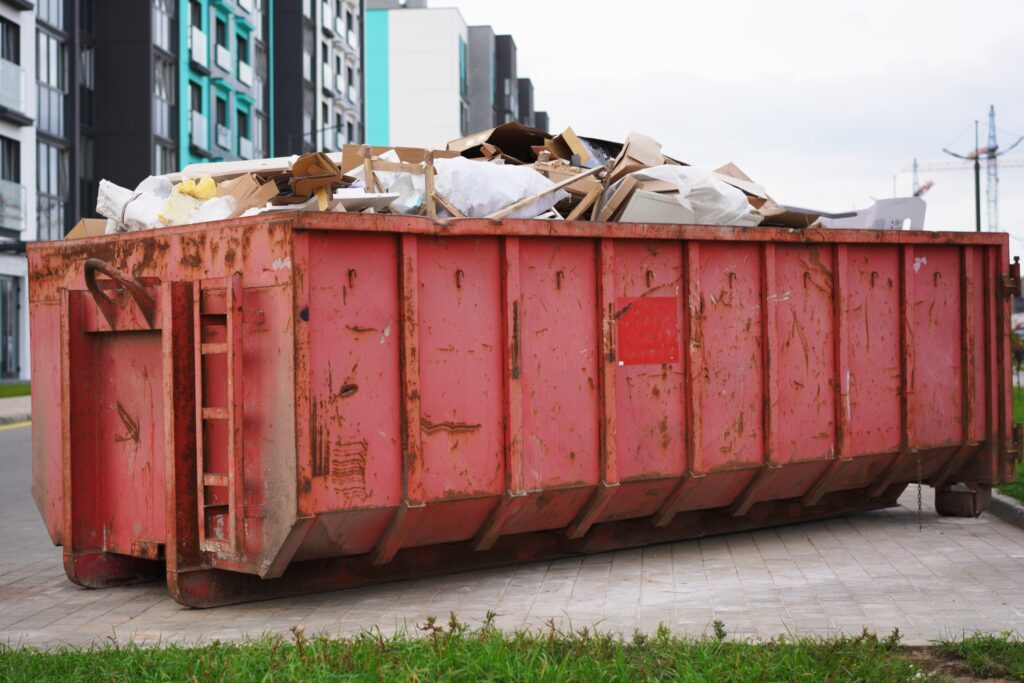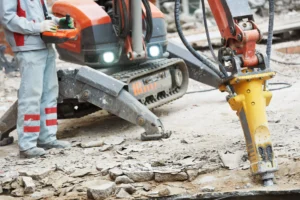With strict regulations in place and environmental concerns at the forefront, it is imperative that both people and companies follow certain standards to guarantee efficient trash disposal. If you live in California, it is crucial to understand the state’s trash disposal laws, especially when it comes to knowing what you should throw in a dumpster. Whether you are disposing of commercial or residential waste, being knowledgeable about what can go in the container is essential to upholding regulations and protecting the environment. In this post, we examine the many rules that control dumpster usage in California, clarifying what can be disposed of while emphasizing the significance of appropriate trash management techniques.
What You Can Dispose of in a Dumpster
- Household Waste

Dumpster rental law in CA
By allowing the disposal of domestic garbage in dumpsters, locals may dispose of their regular trash easily and effectively, lessening the possibility of unlawful dumping, which can result in hazardous environmental conditions and ugly situations. In addition, appropriate disposal lessens the likelihood of pests and illnesses linked to improper waste management. The state aims to preserve hygienic and clean living conditions while encouraging responsible waste management practices among its citizens by controlling the usage of dumpsters for residential garbage.
- Construction Debris
Practical reasons and environmental restrictions in California control what you can dispose of in a dumpster when it comes to construction waste. The state legislation mandates efficient management of waste in building projects to guarantee material disposal, safety, and cleanliness. Dumpsters are a practical and controlled answer to the logistical issues posed by construction debris, which might range from wood to concrete. California hopes to encourage a safer and more sustainable construction sector by streamlining waste management procedures, encouraging appropriate handling of building materials, and reducing possible environmental concerns associated with improper disposal.
- Yard Waste
The state promotes safe disposal methods by allowing the disposal of yard waste in dumpsters, which lessens the possibility of unlawful dumping or incorrect treatment of organic materials. Additionally, adding this type of garbage to dumpster disposal systems allows for proper treatment, such as by mulching or composting, which may help improve soil quality and reduce erosion. This strategy is in line with California’s vast initiatives to reduce landfill trash and advance the circular economy by reusing organic matter for the good of communities and the environment.
- Furniture & Appliances
Laws in California allow people to dispose of appliances and furniture in dumpsters for a number of reasons. First, it makes ethical trash management easier by offering a practical way to handle large, heavy objects. This lessens the likelihood of unlawful dumping, which endangers public health and the environment. Additionally, by guaranteeing that both households and businesses have access to appropriate disposal channels, enabling the disposal of furniture and appliances in dumpsters enhances community safety and cleanliness. It also makes the process of removing unnecessary goods after moves, restorations, or upgrades easier, which promotes general urban hygiene and aesthetic upkeep.
- Non-Hazardous Materials
The rules in this state aim at reducing environmental hazards and optimizing trash management by allowing the disposal of non-hazardous items in dumpsters. In contrast to harmful chemicals, non-hazardous compounds provide a lower danger to the environment and public health. Allowing its disposal in dumpsters streamlines waste management operations and promotes the proper pickup and disposal of low-risk junk. This technique aligns with California’s waste management regulations, which seek to achieve a balance between practical garbage disposal alternatives and environmental protection. The state promotes good waste disposal practices and allows the disposal of non-hazardous materials in dumpsters to protect the safety and well-being of its residents and ecosystems.
- Prohibited Items
To preserve environmental sustainability and public safety, California law prohibits the dumping of particular goods in dumpsters. Hazardous wastes include batteries, fluorescent light bulbs, and electronic equipment such as computers and televisions. Furthermore, one should not dispose of tires, asbestos-containing debris, and liquids such as motor oil and paint in dumpsters because they have the potential to damage soil and water supplies. It is not advisable to dispose of green garbage such as yard clippings and food scraps to promote composting and limit landfill use. Laws promoting proper disposal of hazardous items are necessary to protect both the environment and human health.
It is important to verify the precise laws and restrictions about trash usage and disposal in your locality by contacting your waste management authority or dumpster rental firm. One also needs to look into recycling programs before throwing away anything in a trash container because certain products could be eligible for reuse.


